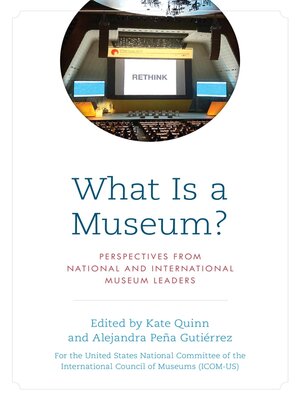What Is a Museum?
ebook ∣ Perspectives from National and International Museum Leaders
By The United States National Committee of the International Council of Museum The United States N...

Sign up to save your library
With an OverDrive account, you can save your favorite libraries for at-a-glance information about availability. Find out more about OverDrive accounts.
Find this title in Libby, the library reading app by OverDrive.



Search for a digital library with this title
Title found at these libraries:
| Loading... |
What makes a museum, a museum in the 21st century? This is a transformative moment in the history of museums. Traditionally, the museums have been defined by the functions of collecting, preserving, documenting, researching, exhibiting and in other ways, communicating and interpreting evidence of human culture and history for the benefit of everyone. But what is the future of museums in a fast-changing world of economic uncertainty, social disruption, health challenges and climate change? Can museums reflect the accountability and transparency under which they are expected to acquire and use their material, financial, social, and intellectual resources?
What Is a Museum? Perspectives from National and International Museum Leaders shares perspectives from dedicated professionals investigating how museums can meet their ethical, political, social, cultural, and environmental responsibilities in the years to come. In a series of essays, well-known leaders in the museum sector and related fields contribute to our understanding of the current and future challenges facing museums around the world. ICOM-US Co-Chair and Secretary of the Smithsonian, Lonnie G. Bunch III, summarizes the issues and provides guidance for the future of museums.
Questions explored include:
This book is a valuable resource for anyone interested in why museums matter today, what their future holds, and how to change them






